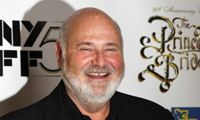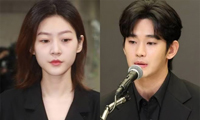Do We Korean Americans Ever Learn from Our Past Ordeals?
▶ Commentary
▶ By K. W. Lee
Have we learned anything from America first media-instigated urban pogrom which gutted more than 2,000 Korean immigrant businesses to the tune of nearly a half billion dollars in the City of Angels?
Have we learned a thing from the 10-year-plus run of TV show ?*A*S*H which had insulted the intelligence of Koreans everywhere through half-lies, white-lies and stupid-lies about Korea and Koreans?
I remember all too well how Korean Americans cringed with embarrassment or impotent fury whenever Koreans were portrayed in distorted, ridiculous and outlandish manners in so many episodes. To the great relief of the much maligned Korean American community, the show closed in February 1983.
At that time, I told a Los Angeles Times reporter that our Korean community must share the blame for the cultural carnage:
First-generation Koreans like my generation are prisoners of our own cultural inhibition, which gives premium to politeness. My concern is Korean people, not the program.
“It shows how far Korean Americans have to travel to sensitize the American mass media about the stereotypical roles of Koreans and other Asians in the media.
“We Koreans have much to learn from the (Jewish) Anti-Defamation League.
A few months later, Time magazine poked fun at LA? struggling Korean immigrants by depicting them as the Mortimer Snerds of America who couldn? learn the language and looked down on blacks and Latinos, and were more likely to commit crimes than any other Asian ethnic group..
Like a shock wave, the Korean Americans reacted in fury and in unity, spearheaded by a fledgling activist group called the Korean America Coalition. At least twice they picketed Time? LA bureau in Beverly Hills, waving placards saying, “We won? be divided, No More Lies, “Stop Racim in the Media.
Its president, then UCLA law student T. S. Chung, led a six-member KAC delegation to the Times bureau with a five-point demand. The other five were community lawyers T. S. Suhr and William Min, school teacher Suzie Oh, youth worker Jane Kim and KAC chairman David Hyun. Letter-writing drives spread like wild fire among the emerging Korean settlements across the nation.
The mighty magazine, however, thumbed its mega-nose at the protesting Korean Americans who, without clout, didn? matter. The next issue ran two one-paragraph letters from the angry Korean Americans. No editorial apology. No corrections.
Because they were in their infancy, today? Korean Americans in their 20s and 30s don? remember the media outrages their previous generations had suffered for decades in silence..
In the 1970s, Korean Americans loomed in the mainstream media as sinister aliens bearing gifts and bribes to subvert the Congress of the United States.
The dreaded KCIA, student-turned- lobbyist Tong Sun Park and the
moonfaced Rev. Moon of the Unification Church were headline makers and the targets of media and congressional investigations.
In the shadow of the frenzied, media-hyped hysteria, hapless newcomers from Korea who had nothing to do with the influence-buying scandal underwent a psychological “concentration camp period.
Almost every one of us who had come to bear witness to the Korean-bashing bears a scar.
In anger I look back those bleak years when politicians and government bureaucrats, local, state and federal avoided us like the yellow plague. Our children lived with cruel jokes and taunting from their unthinking peers. Fellow immigrant merchants in inner-cities were targets of vicious harassment during the Koreagate years.
It? no clich?that Koreans and Korean Americans ever fragmented and divisive are the easiest among Asian American ethnic groups to pick on. Deep in our hearts we know why. Don? we?
Meanwhile, the Korean-bashing “M*A*S*H” has been back on TV screens for years with continuing popularity. But not a whisper of complaint from LA? Korean American community has greeted the revival of the loathed sitcom.
And only a faint voice of protest has been heard from our self-absorbed immigrant enclaves against the Wen Ho Lee witch hunt which has galvanized the Chinese American communities across the nation into a political force.
The Wen Ho Lee Fund (P. O. Box 120, Fremont, CA 94537; www. Wenholee.org), started by his daughter Alberta, a UCLA graduate, has already drawn hundreds of thousands of dollars in small donations nationwide. And it has gained national attention and mounting financial support.
We are not Chinese American so why do we care?
Prof. Ling-chi Wang, chairman of UC-Berkeley? Ethnic Studies Department, an early supporter of the Fund, tells us:
“There is no more compelling and urgent civil rights issue facing Chinese Americans and Asian Americans today than the issue of racial profiling raised by the Wen Ho Lee/Cox Report.
Have we Korean Americans learned a thing or two from the latest Chinese American experience?
And what happened to a proposed Korean American Anti-Defamation League to help prevent another siege of LA Koreatown in the fire next time? It still remains a day dream. Such a seed for a larger common cause simply isn? in our cultural DNA, I dare say.
A pioneer Asian American journalist and the former editor of The Korea Times English Edition, K.W. Lee was invited again to lecture a course on ?nvestigative Journalism?ommunities of Color: Exploring California Pacific Rim Mosaic at UCLA last fall.
스마터리빙
more [ 건강]
[ 건강]이제 혈관 건강도 챙기자!
[현대해운]우리 눈에 보이지 않기 때문에 혈관 건강을 챙기는 것은 결코 쉽지 않은데요. 여러분은 혈관 건강을 유지하기 위해 어떤 노력을 하시나요?
 [ 건강]
[ 건강]내 몸이 건강해지는 과일궁합
 [ 라이프]
[ 라이프]벌레야 물럿거라! 천연 해충제 만들기
 [ 건강]
[ 건강]혈압 낮추는데 좋은 식품
[현대해운]혈관 건강은 주로 노화가 진행되면서 지켜야 할 문제라고 인식되어 왔습니다. 최근 생활 패턴과 식생활의 변화로 혈관의 노화 진행이 빨라지고
사람·사람들
more많이 본 기사
- 마약딛고 함께 영화도 만들었는데…라이너감독 살해한 아들 체포
- LA서 ‘새해벽두 폭탄테러’ 모의 일당 체포… “기업들 공격 시도”
- 트럼프, 합성마약 펜타닐을 ‘대량살상무기’로 지정
- ‘오염 하수 옥신각신’ 미국·멕시코 새 협약 합의
- “中 서해부표 이중용도 가능성…직접 도발 피하며 존재감 증대”
- 트럼프 “시리아 대통령 신뢰…그는 IS의 미군 공격과 무관”
- 대기천 워싱턴주 강타 역대급 홍수 ...워싱턴주 서부 이례적인 대기천 폭우로 역대급 홍수 발생
- 트럼프, 라이너감독 피살에 “나에 대한 발작적 집착이 분노유발”
- 멕시코의 최대 50% 관세 배경 설명, ‘트럼프 복사판’
- 브라운대 총격사건 수사 난항 겪나…체포한 용의자 석방
- ‘최고 부자’ 머스크 자산 6천770억달러 돌파…”최초 조만장자 눈앞”
- “보이스피싱 이렇게 이뤄집니다”...시애틀총영사관, 타운홀 미팅서 실제사례 재연
- ‘10명 탑승’ 항공기 멕시코서 추락… “최소 6명 사망”
- ‘베네수 코앞’ 트리니다드토바고 “미군에 공항접근 허용”
- 시혹스 56야드 필드골 콜츠에 극적 승리...터치다운 없이 6개 필드골로 버티며 간신히 승리 챙겨
- 美 지한파 중진 “한국 등과 다변화된 광물 공급망 구축해야”
- “연준의장 유력후보 해싯, ‘트럼프와 너무 가깝다’ 반대론 직면”
- 테슬라 11월 미국 판매… 4년만에 최저
- 시애틀서 대규모 부정선거 보수집회...KCPAC 주도한 ‘자유민주-한미동맹 시애틀포럼’에 300여명 몰려
- 미·우크라 이틀간 종전협상…안전보장 진전, 영토 문제 난항
- ‘15년째 활동 無’ 원빈 근황, 이시언 유튜브서 공개..”잘 지내는 중”
- 오레곤문인협회 신임 회장에 김인자 시인...11일 정기총회서…김혜자 직전회장 6년간 헌신 다해
- 뉴욕증시, AI 회피 심리 지속…하락 마감
- ‘해리가 샐리를 만났을 때’ 롭 라이너 감독 부부 피살
- 항공기 승객정보 활용 추방 확대
- 국과수 “김수현·故 김새론 녹취파일, AI 조작 판정 불가”
- “내 한국인 남편, 40일 넘게 개처… 1
- 마약딛고 함께 영화도 만들었는데…라이너감독 살해한 아들 체포
- 박나래 ‘링거·주사 이모’ 난리통 속 결국..MBC ‘팜유트립’ 제작 무산
- 현대車사장, ‘구금사태’ 조지아서 “일자리 4만개 창출할것”
- [경제 트렌드] 외식비 줄이는 소비자… ‘팁 공포’ 한몫
- 뉴욕 백화점서 아기 기저귀 갈던 엄마, 정신질환자에 흉기피습
- 美당국자 “러, 우크라 EU가입에 열… 1
- 180일 수사 마치고 재판 넘긴 내란특검…이제 ‘법원의 시간’
- 지구촌 또 ‘총기 난사’… 미·호주 잇단 참사
- 관세가 끌어올린 물가… 가구당 1,200달러 추가 지출
- NYT “美 SEC, 트럼프 재집권 후 암호화폐 소송 중단”
- 경찰, 쿠팡 6차 압수수색 11시간30분만에 종료 “데이터 방대”
- 워싱턴 한국학교협의회, 제37회 교사의 밤
- 상무, 고려아연의 美제련소 건설 투자… 1
- 대학 진학에 도움되는 AP… 적합한 과목 적절히 선택해야
- 통일교 등 압수수색 15시간만 종료…회계자료·휴대전화 확보
- ‘128개 홈디포 매장서 319건 절도’ 플러싱 기반 전문절도단 일망타진
- 피로 얼룩진 주말…지구촌 곳곳 총격사건 잇달아
- 러 “우크라 나토 비가입, 평화 대화의 초석될 것”
- 비극 속 시민의 용기 총격범 맨손 제압
- 역시 호날두! 북중미 WC 인기 티켓 1위는? 포르투갈-콜롬비아전... 3위가 한국-멕시코전 “개최국 효과”
- 백화점서 아기 기저귀 갈던 엄마 40대 정신질환자에 흉기 피습
- ‘지독한 플래툰’ 김혜성도 71G 뛰었는데, 美 팬그래프 ‘송성문 ML 36G 타율 0.251’ 예상
- 오늘의 베네수엘라가 내일의 동아시아국… 2
1/5지식톡

-
 테슬라 자동차 시트커버 장착
0
테슬라 자동차 시트커버 장착
0테슬라 시트커버, 사놓고 아직 못 씌우셨죠?장착이 생각보다 쉽지 않습니다.20년 경력 전문가에게 맡기세요 — 깔끔하고 딱 맞게 장착해드립니다!장착비용:앞좌석: $40뒷좌석: $60앞·뒷좌석 …
-
 식당용 부탄가스
0
식당용 부탄가스
0식당용 부탄가스 홀세일 합니다 로스앤젤레스 다운타운 픽업 가능 안녕 하세요?강아지 & 고양이 모든 애완동물 / 반려동물 식품 & 모든 애완동물/반려동물 관련 제품들 전문적으로 홀세일/취급하는 회사 입니다 100% …
-
 ACSL 국제 컴퓨터 과학 대회, …
0
ACSL 국제 컴퓨터 과학 대회, …
0웹사이트 : www.eduspot.co.kr 카카오톡 상담하기 : https://pf.kakao.com/_BEQWxb블로그 : https://blog.naver.com/eduspotmain안녕하세요, 에듀스팟입니다…
-
 바디프렌드 안마의자 창고 리퍼브 세…
0
바디프렌드 안마의자 창고 리퍼브 세…
0거의 새제품급 리퍼브 안마의자 대방출 한다고 합니다!8월 23일(토)…24일(일) 단 이틀!특가 판매가Famille: $500 ~ $1,000Falcon: $1,500 ~ $2,500픽업 & 배송직접 픽업 가능LA…
-
 바디프렌드 안마의자 창고 리퍼브 세…
0
바디프렌드 안마의자 창고 리퍼브 세…
0거의 새제품급 리퍼브 안마의자 대방출 한다고 합니다!8월 23일(토)…24일(일) 단 이틀!특가 판매가Famille: $500 ~ $1,000Falcon: $1,500 ~ $2,500픽업 & 배송직접 픽업 가능LA…
케이타운 1번가
오피니언
 옥세철 논설위원
옥세철 논설위원오늘의 베네수엘라가 내일의 동아시아국가…

퇴조의 핑크 타이드
 조지 F·윌 워싱턴포스트 칼럼니스트
조지 F·윌 워싱턴포스트 칼럼니스트 [조지 F. 윌 칼럼] 대통령의 전쟁수행권
 조옥규 수필가
조옥규 수필가 투고(To Go) 해야 하나?
 신경립 / 서울경제
신경립 / 서울경제 [만화경] ‘뒷마당’ 찾겠다는 트럼프식 먼로주의

22기 LA평통 출범에 거는 기대

연말 시즌 사기·범죄 경계해야
 메건 매카들 워싱턴포스트 칼럼니스트
메건 매카들 워싱턴포스트 칼럼니스트 [메건 매카들 칼럼] 장편영화의 마지막 챕터인가
 김미선 서북미문인협회 회장시인
김미선 서북미문인협회 회장시인 [한국춘추] 하늘을 계산한 사람들, 칠정산
1/3지사별 뉴스

피로 얼룩진 주말…지구촌 곳곳 총격사건 잇달아
지난 주말 동안 미동부 아이비리그 브라운대학에서 총격 사건이 발생, 최소 2명이 사망하고 9명이 부상한데 이어 호주 시드니에서는 사망자 16…
뉴욕·뉴저지 등 19개 주정부 H-1B비자‘10만달러 수수료’소송

워싱턴 한국학교협의회, 제37회 교사의 밤
재미한국학교 워싱턴지역협의회(회장 정광미)가 13일 ‘제 37회 교사의 밤’을 개최, 한 해 동안 헌신한 교사들의 노고를 위로했다. 올해 최우…
안수화 회장 연임 확정

마약딛고 함께 영화도 만들었는데…라이너감독 살해한 아들 체포
할리우드 명감독 롭 라이너 부부를 살해한 혐의로 체포된 아들 닉 라이너(32)는 10대 시절 마약 중독으로 재활센터와 노숙 생활을 전전한 이력…
내년 중간선거 낙관못하는 트럼프… “경제성과 전달에 시간 걸려”

오늘 하루 이 창 열지 않음 닫기 



















































.png)


댓글 안에 당신의 성숙함도 담아 주세요.
'오늘의 한마디'는 기사에 대하여 자신의 생각을 말하고 남의 생각을 들으며 서로 다양한 의견을 나누는 공간입니다. 그러나 간혹 불건전한 내용을 올리시는 분들이 계셔서 건전한 인터넷문화 정착을 위해 아래와 같은 운영원칙을 적용합니다.
자체 모니터링을 통해 아래에 해당하는 내용이 포함된 댓글이 발견되면 예고없이 삭제 조치를 하겠습니다.
불건전한 댓글을 올리거나, 이름에 비속어 및 상대방의 불쾌감을 주는 단어를 사용, 유명인 또는 특정 일반인을 사칭하는 경우 이용에 대한 차단 제재를 받을 수 있습니다. 차단될 경우, 일주일간 댓글을 달수 없게 됩니다.
명예훼손, 개인정보 유출, 욕설 등 법률에 위반되는 댓글은 관계 법령에 의거 민형사상 처벌을 받을 수 있으니 이용에 주의를 부탁드립니다.
Close
x